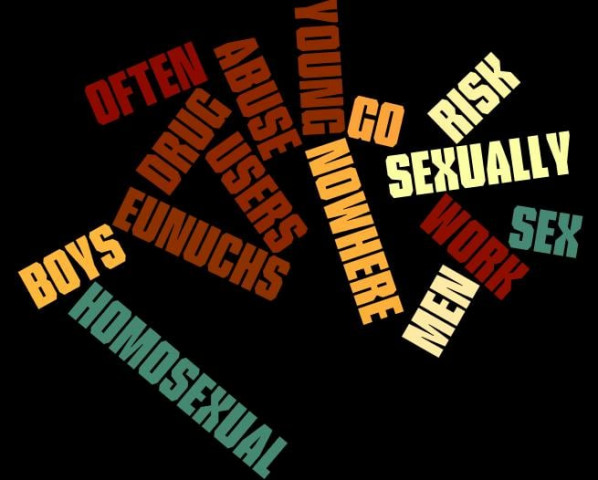Child labour practice adds to spread of AIDS
Young boys work at auto workshops, fruit and vegetable stands, roadside hotels,where sexual abuse is common.

According to Dr Mohammad Naeem of Sukkur Blood and Drugs Donating Society there are three high risk groups, which can easily fall prey to AIDS.
Naeem said intravenous drug users, eunuchs, and homosexual men — who often have sex with, or sexually abuse young boys who work for them — are most at risk.
In Pakistan, child labour is a common phenomenon. For many children it’s a means of survival and providing for their family. Young boys, usually under the age of 12, work under employers at auto workshops, fruit and vegetable stands and roadside hotels. These boys are known as Chotas in many of these shops, where sexual abuse is common.
One such boy is Nauman who lives in Rohri and his father suffers from asthma. Being the only other male member of his family, he started working at an auto workshop, where, he said, his Ustad (employer) treated him well and paid him a daily wage of Rs50 to 75.
One day Nauman said his Ustad asked him to sleep in the workshop, because it was too late for him to go home. “I slept in the workshop and my Ustad started to abuse me,” he said. “I screamed and the area watchman rushed to our workshop and rescued me.”
Since then Nauman started working at another workshop in Sukkur. But unlike Nauman, most Chotas are not lucky enough to escape and are victim to constant sexual abuse by their employers, putting them at risk of getting infected by AIDS.
In addition to these Chotas, Naeem said, there are about 1,500 drug addicts in Sukkur who’ve found novel ways of getting high, involving the use of syringes to ingest the drugs.
In the process these addicts tend to share their needles and contract diseases such as hepatitis-B and C or AIDS.
Published in The Express Tribune, December 1st, 2011.



















COMMENTS
Comments are moderated and generally will be posted if they are on-topic and not abusive.
For more information, please see our Comments FAQ